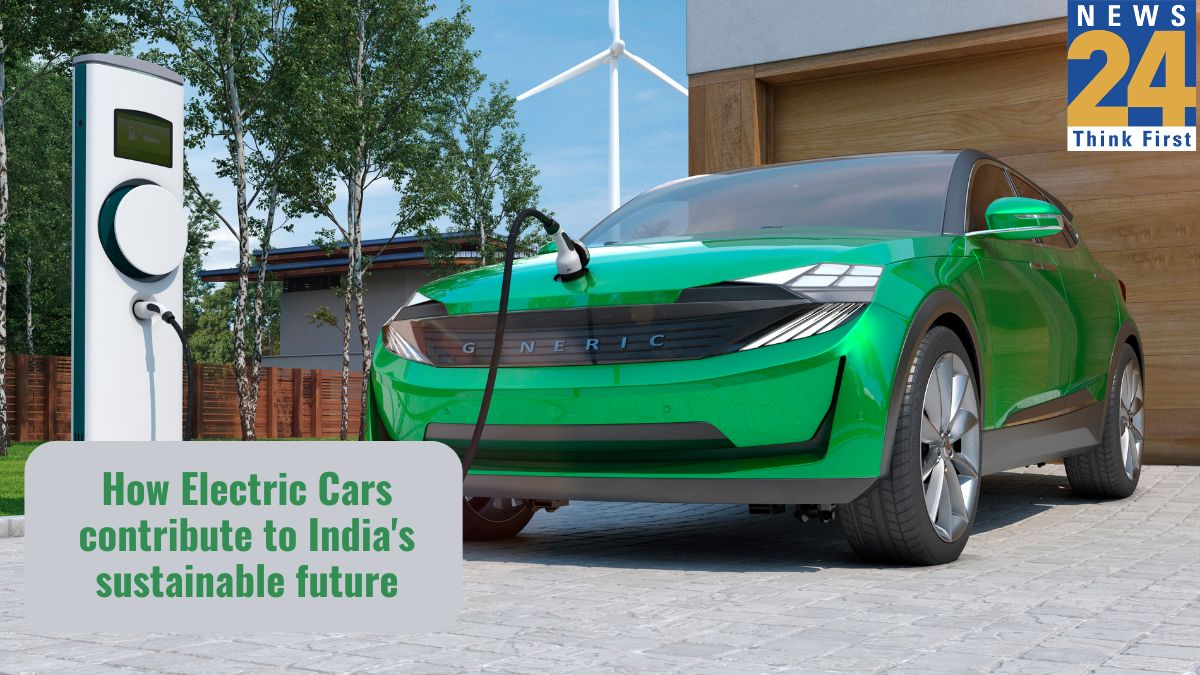Electric vehicles (EVs) have become an effective alternative to traditional internal combustion engine vehicles, reducing harmful emissions and experiencing rapid growth. According to SMEV (Society of Manufacturers of Electric Vehicles), electric vehicle sales in India crossed the one million mark in 2023, with electric two-wheelers accounting for 62% of sales.
This signifies the emergence of the EV industry as a significant contributor towards the sustainable development of India, striking a balance between economic growth and environmental protection. It means that to achieve future sustainability, the growth and development of the EV industry in India is crucial.
India’s EV industry: A green catalyst for the future
In urban areas, conventional traffic contributes significantly to high levels of PM2.5. Additionally, emissions from vehicles with internal combustion engines (ICE) not only impact buildings, agriculture and the environment but also negatively affect human health.
The shift from ICE vehicles to EVs is considered beneficial for the environment. The goal is to reduce greenhouse gas emissions, particularly CO2. Therefore, the main benefit of switching from internal combustion engines to electric vehicles is the reduction of local pollution from combustion.
Zero tailpipe emissions
According to Statista, air pollution is a major problem in India, claiming the lives of 1.66 million people every year. The ICE-powered conventional vehicles emit harmful gases such as CO2, NOx (nitrogen oxide), SOx (sulfur oxide), etc through their exhaust pipes. However, electric vehicles do not need an exhaust and therefore do not emit harmful gases.
When it comes to CO2 emissions, driving an electric car is much more environmentally friendly than driving a petrol or diesel vehicle. A study by the European Energy Agency showed that using an electric vehicle produces between 17 and 30% less CO2 emissions compared to using a petrol or diesel vehicle.
Less noise pollution
In January 2023, Earth5R conducted a survey that found that urban traffic and street noise are the main reasons why noise levels exceed the permitted limit of 50 dB by more than 50%. Rapid advances in technology, industrialisation, urbanisation and other communication and transportation systems have led to alarming levels of noise pollution that require effective management.
To solve this problem, it is recommended to move to electric vehicles (EV). Compared to vehicles equipped with ICE and its exhaust system, electric motors cause less noise pollution. Silencers are used in ICE vehicles to reduce noise pollution, but they are still noisier than electric motors.
Also Read: Self-Driving Electric Cars In India – Future Prospects
Saving on resources
Electric vehicles are a great alternative to traditional motor vehicles because they do not depend on fossil fuels such as diesel or petrol to operate. They can convert a significant part of the electrical energy from the grid with a conversion rate of 60%, while petrol or diesel cars can only convert between 17% and 21% of the stored energy. This means that electric vehicles are more efficient and more environmentally friendly.
India’s transition to electric vehicles will significantly reduce dependence on fossil fuels and drive energy optimisation in the transportation sector. Unlike vehicles that run on fossil fuels, electric vehicles do not require motor oil and therefore do not need to be disposed of. This means that automotive fluids and lubricants, which can pose an environmental risk in internal combustion engine vehicles, are not a problem for electric vehicles.
EVs promote green growth
India is moving towards a sustainable and inclusive development plan that meets the urgent socio-economic growth needs of its billion-strong population. This is in line with the country’s unwavering commitment to achieving the globally agreed Sustainable Development Goals (SDGs).
Sustainability means the responsible use of a country’s resources for its benefit and the reduction of the negative effects of climate change. Electric vehicles (EVs) are an important aspect of India’s economic and sustainable development. By using electricity instead of fossil fuels for transportation, electric vehicles have contributed to green growth and will continue to do so. Accelerating the adoption of electric vehicles will help the country reduce air and noise pollution, conserve resources and create a more sustainable future.
Also Read: Best Electric Cars In India – Top Picks For 2024-Check Now!













